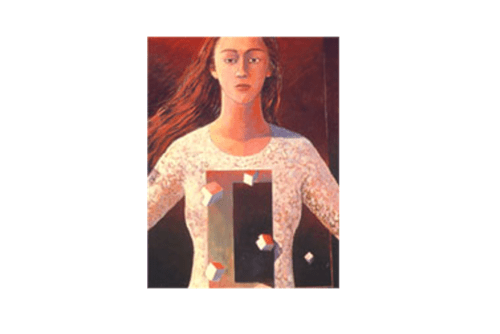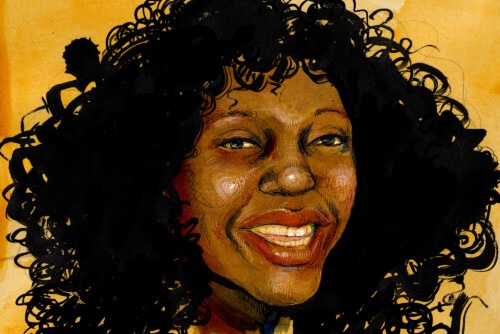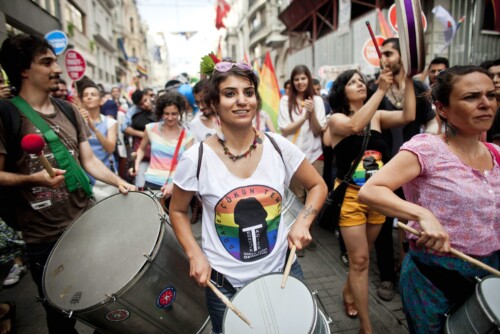One of the twentieth century’s most salient characteristics is that of memory, nostalgia and a special longing for a homeland, real or imagined, desired or neglected. This passion for seeking a home can be translated as a human need to belong in the collective imagination of nations, languages and shared memories. And yet, it is because we have lived through massive displacements in terms of human populations – crossing borders as refugees, exiles, fugitives and dreamers – that the longing for home and the nostalgia for our origins is a prevalent characteristic of the arts in modern times.
The great Russian poet Anna Akhmatova always spoke about writing and feeling as if she represented her entire generation in Stalinist Russia. I also feel part of what has been called the Disenchanted Generation, a generation of people from Latin America forced to live in exile, remembering their long-lost friends and the disappeared. To write during political turmoil is a form of resistance. It is a way to create human narratives in an inhumane world as well as making sure that the residues of obstructed lives are not forgotten.
Through the power of the imaginative spirit, as well as the courage this spirit brings, artists in the twentieth and twenty-first centuries have become the chroniclers of history and unaccounted-for lives and the guardians of memory. Thus, they are the narrators of a new history that is not documented and full of statistics, but rather a history that brings to the forefront human emotions and passions as well as the fears that the official and patriarchal history have so cleverly disguised.
The artists in this special issue write about the future and about hope because to remember and to revive memories is a form of resistance. They explore the fundamental questions that are embedded in our century. It is through the detailed narratives and gestures that configure human emotion that the artists included in this issue address the complexity of exile, censorship, violence and the loss of language which is the loss of being.
Each of the artists featured in this journal systematically addressed the constant feeling of being uprooted as well as the loss of a cultural context that allows them to find their true identities.
In her poignant essay, Mahnaz Afkhami invites us to enter her personal and collective odyssey as a political exile from Iran. We get a good look at her personal and intimate horizon that is also a universal feeling of loss:
My life was thus abruptly severed from its roots. Everything that had given me a sense of who I was, my country, my home, my job, my colleagues, my friends, my language was suddenly distanced, ruptured, lost to me. I was an exile. Not only was my relationship with my country changed, but my relationship with the country in which I was a temporary visitor was completely altered. But the severest disruption was in my self-perception, my sense of who I was.
Afkhami’s loss of her own origins can be translated as a metaphor of a human and particularly feminine feeling of invisibility and of not being accounted for in the discourse of history. Afkhami allows us to expand her own vision of exile to the many forms of displacement and abandonment that women have suffered throughout history and she begins to mention several of these, such as the foot-binding that Chinese women were subjected to and the very limiting cultural and language barriers imposed on Vietnamese girls due to colonialism. Through her essay we come to understand the complexity involved in speaking about exile from a political and gender-oriented point of view.
Afkhami’s introductory essay allows us to understand the commonality of experience that women face when searching for home, belonging or the nostalgia for a homecoming to a physical or imaginary place. Meena Alexander shares with Afkhami the search for home and the ambiguous return. Through poetry and letters, she explores and the memory of immigration, which is also the memory of journeys toward the center of the human heart. She says, “For me, the question of home is bound up with a migrant memory and the way that poetry, even as it draws the shining threads of the imaginary, through the [_______] of everyday life, permits the dwelling at the edge of the world.” I believe that Alexander is exploring the frail concept of the abyss, of what it means to live on the edge. She also touches upon the mysteries of languages that for her are “a zone anterior to place and to syntax so that the molten core of what we are might be refigured and the forms of language cast afresh.”
The process of retracing, recollecting and meditating on memory and identity is a fundamental presence in the work of the artists featured herewith. The search for home becomes in itself the core of the journey, the crossing of many landscapes, rivers and tongues. “She puts out both her hands. They will help her hold on, help her find her way.”
The cultural memory of Iran or Southeast Asia transcends and transgresses national borders. It becomes one search for belonging and returning to a home, real or imagined.As Meena Alexander says, “She has to invent languages marked by many tongues.”
The last essay in this issue is a meditation by Judy Dworin along the same themes we have seen in Afkhami’s and Alexander’s essays. Judy Dworin is a performer and choreographer and as such, she is very aware of what is often invisible, of steps and murmurs as well as the fate of those crushed by an “official historical discourse.” Like her fellow artists, she traces, hears, and revives the voices and steps of the unaccounted for and the forgotten. Judy Dworin searches for the truth in the mad witch hunt of seventeenth-century New England and moves on to the witch hunts of the twentieth century in Argentina that left thousands of disappeared. Judy Dworin’s pieces are collective movement that flows with ease through the borders from North to South or from Tibet to Chile. Home for Dworin is the boundless possibility of movement in the spaces beyond space and in the memory of the dead and the living. She says that artists are agents of change, global workers, bringing the worldwide political to the personal.
It is not coincidental that these three artists share a common search for the locus of home and the writings about home using the form of letters or diaries which are often considered minor forms of official accounts. It is precisely why these forms of writing are so important in their creative vision since they represent the other form of history, the other voice that must trespass beyond silence and shadows in order to be heard.
The inaugural issue of The Scholar & Feminist Online represents a vital contribution to the intrinsic relationship among the arts, human rights and gender. We share the vision and the possibilities of transforming memories of brutality into memories that force us to ask questions and which refuse to be forgotten or silenced. The search for memory and the truth becomes an active engagement with the past and the future, which in turn, allows us to hope.
Ogunquit, Maine
Summer 2001



